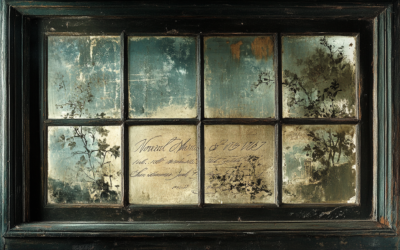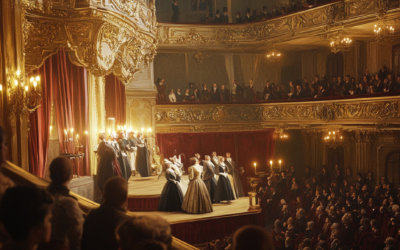Leopold Mozart
A Portrait in Shadows
Leopold Mozart, father of the famed Wolfgang, led a life filled with missed opportunities, deceptions, and an unrelenting quest for recognition.
From his university expulsion for negligence to his web of lies to secure marriage approval,
Leopold’s life unfolded in a pattern of ambition and pettiness, casting an unsettling light on a man whose moral uprightness was, at least outwardly, his badge of honour.
Mozart: The Fall of the Gods
This book compiles the results of our studies on 18th-century music and Mozart, who has been revered for over two centuries as a deity. We dismantle the baseless cult of Mozart and strip away the clichés that falsely present him as a natural genius, revealing the contradictions in conventional biographies. In this work, divided into two parts, we identify and critically analyze several contradictory points in the vast Mozart bibliography. Each of the nearly 2,000 citations is meticulously sourced, allowing readers to verify the findings. This critical biography of Mozart emerges from these premises, addressing the numerous doubts raised by researchers.
"One cannot help but admire a man who could lie so boldly, even about his own father’s death, just to secure a better future."
Mozart: The Fall of the Gods
The Father of Wolfgang Mozart: Ambitions, Deceptions, and a Life of Humiliation and Compromise.
A Ribellious Youth
Leopold Mozart was far from the upright figure he liked to project, and his early years bear witness to this fact. Born in Augsburg, the son of a bookbinder, Leopold might have followed his father’s craft. Yet, with the pretence of an ecclesiastical calling, he deceived his father and enrolled at the University of Salzburg, benefiting from the hospitality of the Benedictines. However, his tenure there was short-lived: despite a promising first year, he was soon reprimanded for neglect and was unceremoniously expelled in 1739.
The Deceptive Path to Marriage
Years later, Leopold continued his pattern of deceit. Having fallen for Anna Maria Pertl, a young woman of humble origins, he sought his mother’s approval for the marriage and even requested an advance on her dowry. In his appeal to the Augsburg city council, he presented a wholly fabricated story: he claimed his father had recently sent him to Salzburg to study, and that he was now gainfully employed as a “valet” for a high-ranking noble. He further asserted that his bride-to-be was the daughter of a wealthy citizen, a fiction as bold as it was unfounded. Solomon remarks on the audacity of Leopold’s claims, pointing out that his father was, in fact, already deceased, that Anna Maria had no affluent lineage, and that Leopold held no such prestigious employment.
A Life of Discontent and Humiliation
Leopold’s struggle for recognition in Salzburg brought him only disillusionment. Though he served in the court orchestra, he never ascended beyond the rank of Deputy Kapellmeister. In 1753, his career nearly ended in disaster due to an anonymous pamphlet he had circulated, ridiculing several prominent ecclesiastics. His punishment was public and humiliating: he was forced to beg forgiveness, and the pamphlet was symbolically torn to pieces at his feet.
The ‘Virtuous’ Father
Despite his troubled path, Leopold clung to the veneer of a righteous, disciplined man—a character description belied by his actions. His son Wolfgang’s musical prodigy brought him some satisfaction, yet Leopold’s own life was steeped in compromise and disappointment. Florian Langegger, a contemporary, commented on Leopold’s strained family relations, including his troubled dealings with his mother, whom he blamed for supporting his other siblings while doubting his loyalty.
You May Also Like
Mozart’s Illusory Triumphs
The story of the young Mozart’s so-called triumphs at the courts of Europe is a tale riddled with embellishments, half-truths, and fabrications—many courtesy of Leopold Mozart himself and those who later sought to mythologize his son. One such example is the visit to Munich on 12 January 1762.
The Vienna Disaster
The failure of La Finta Semplice in Vienna was a turning point for the Mozart family, revealing the cracks in the facade of Wolfgang’s prodigious reputation and prompting a desperate escape to Italy in search of redemption.
From Innsbruck to Bolzano
From Innsbruck to Bolzano, the Mozart family’s journey was a blend of strategic networking and missed opportunities, revealing the challenges of securing fame in 18th-century Europe.
The Myth of Mozart’s Sight-Reading Genius
Mozart’s so-called sight-reading miracles were less about supernatural talent and more about clever improvisation, as two key 18th-century witnesses make clear.
The Hidden Legacy of Michael Haydn
Mozart’s Symphony No. 37, K.444, is more Haydn than Mozart. How did this happen? A story of deception and misattribution unfolds.
The Myth of Mozart’s Education
For centuries, Wolfgang Amadeus Mozart has been celebrated as a musical prodigy, effortlessly composing masterpieces from a young age. However, when we peel back the layers of myth surrounding his early education, a different picture emerges—one in which his father, Leopold Mozart, plays a far more controlling and influential role than is often acknowledged. This article explores the true nature of Mozart’s education, examining how much of his early works can be attributed to his own genius, and how much was the product of his father’s meticulous and often self-serving guidance. Was Wolfgang’s brilliance entirely his own, or was it a crafted image designed by Leopold?







